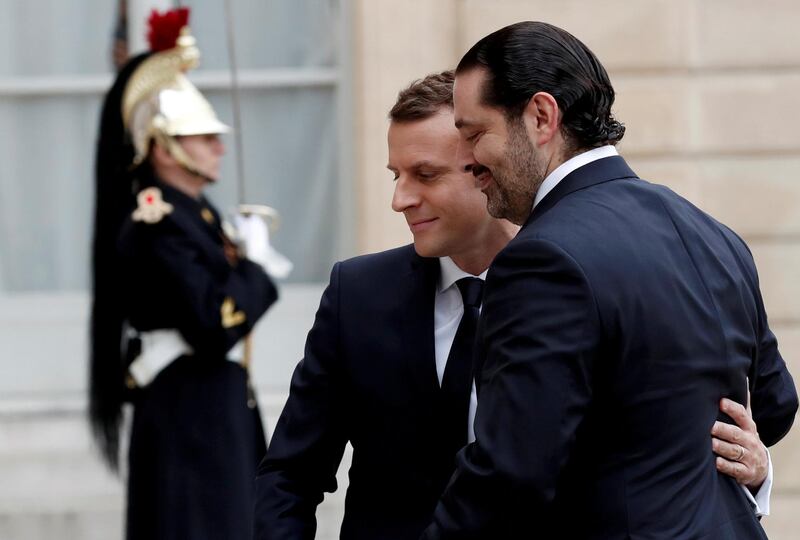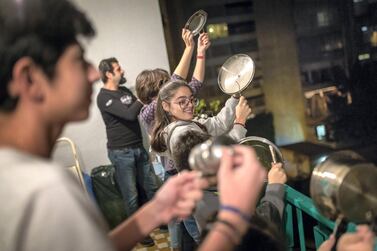France is set to gather a meeting of the International Support Group for Lebanon in Paris on Wednesday, amid continued political deadlock over a new prime minister after months of protests.
French Foreign Minister Jean Yves Le Drian said the meeting would ensure Lebanese authorities understood the danger of the situation in the country.
The meeting will be chaired by the French Foreign Ministry Secretary General, Francois Delattre, and UN special Co-ordinator for Lebanon, Jan Kubis.
It will call on the Lebanese to rapidly form a government and agree on plans for it to receive economic and financial aid from the international community.
The countries and organisations taking part are the five permanent members of the UN Security Council, plus the UAE, Saudi Arabia, Egypt, Germany, Italy and Kuwait.
It will also include the EU, the Arab League, the European Bank for Reconstruction and Development, the European Investment Bank, the International Monetary Fund and the World Bank.
Lebanon has also been invited and will send the Secretary General of its Foreign Ministry, Hani Chmaytelli.
The crisis in Lebanon and continuing deadlock between the political class and the protest movement prompted France to gather the meeting.
Paris stressed the need for Beirut to form an “efficient and credible” government that can implement specific economic and political reforms.
It would then be better placed to receive the financial support of the international community and respond to the expectations of the Lebanese population, whose protests for better living conditions have continued for eight weeks.
The plan put forward at the meeting will seek to halt the deterioration of the Lebanese economy and restore confidence in it, as well as addressing social and economic challenges.
It requires the next government, in its first weeks, to put forward a reliable 2020 budget to reduce the country’s deficit and strengthen financial safety nets to protect the poor.
Gathering countries will also urge the Lebanese authorities to take action to restore the stability of the financial sector, adopt an anti-corruption law and judicial reforms, introduce electricity reforms and improve governance. This is for the short term.
For the long term, the meeting says that in the first six months after the formation of the government, measures to ensure a sustainable economic model should be put in place.
After introducing these measures, Lebanon will have the financial support of the international community.
More meetings could be held at a later date at different levels if required.
On Tuesday, after the GCC summit in Riyadh, Saudi Arabia's Foreign Minister said stability in Lebanon, which has been rocked by more than a month of protests that forced the prime minister to resign, was "very, very important" to the kingdom.
Prince Faisal bin Farhan said he would not "prejudge" a conference planned this week in Paris to support Lebanon, which is facing its worst economic crisis since the 1975-90 civil war.
"I'll wait for the results of the conference," Prince Faisal said.
The Lebanese people and the political system need to find a way to guarantee its stability and sovereignty, he said after the summit.






